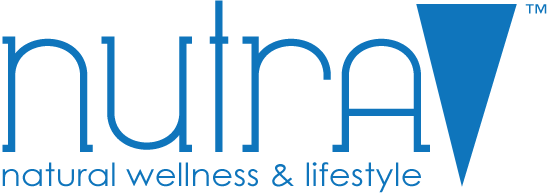Our Endocannabinoid System and the Importance of Sleep
There are plenty of tricks to improve sleep. You can try acupuncture, cryotherapy, prolotherapy, vibration therapy, compression, magnets, kinesio tape, foam rolling, electrostimulation, photobiomodulation, PEMF treatment, inversion, enzymes, magnesium, and much more.
Focusing on sleep is integral because it does more for you than any biohack, supplement, or recovery program can. Getting your "8 hours" is extremely important to looking and feeling your finest. But not all of us are adept at it. It's still important you do it.
In this article, we'll review some of the side effects of lack of sleep, how the endocannabinoid system (ECS) is important, and how to sustain your ECS with the right food, herbs, and supplements – even with CBD.
Effects of Sleep Deprivation
In this age of social media interaction and technology growth, combined with maintaining work, exercise, and friendships, sleep is frequently on the back burner. And a big part of lack of sleep is due to anxiety and stress. To combat these problems, it's integral to maintain balance in your work and personal life.
Some issues that come with a lack of sleep are:
- Minimized growth hormone and increased cortisol secretion that cause stress and anxiety
- Impaired mental function
- Weight gain and diabetes
- Increased pro-inflammatory cytokines, which harm immune systems, muscle mass recuperation, and body repair
- Imbalances in autonomic nerves
- Altered discomfort perception
You also experience decreased sports performance, affecting your:
- Sub-maximal strength
- Running performance
- Muscle glycogen concentration
- Time of fatigue
- Isokinetic torque
- Minute ventilation
- Distances covered
- Sprint times
...and much more.
Avoiding sleep impedes your recuperation for peak efficiency and affects your overall health and wellness. And sleep deprivation can lead to some dangerous issues. Some of the largest man-made disasters, such as Chernobyl and the Exxon Valdez incident, were due to sleep deprivation. Rest is crucial.
Exactly How Your Endocannabinoid System Works
The endocannabinoid system (ECS) covers your brain, organs, connective tissues, glands, and immune cells. The ECS provides the body with a state of homeostasis and equilibrium.
It works as a chemical-signaling system that senses disruptions or specific input from your surroundings and launches substances within your body known as endocannabinoids.
Visualize hiking one day and a black bear crosses your path. Your body reaches fight-or-flight mode: your temperature rapidly increases, adrenaline rises, blood shoots to your limbs, pupils dilate, and every one of your energy stores shift away from digestion. You are now in full defense mode.
When the bear leaves, your body recognizes the risk has left and starts to release endocannabinoids, which then bind to receptors in virtually every cell in your body. It launches an excitatory or relaxation effect on different body organs and systems. Your ECS slowly decreases your heart rate, calms your nervous system, and restores a feeling of safety and security.
If you practice healthy eating and reduce your levels of stress and anxiety, your ECS does what it is designed to do with relative ease. When not, ECS shortages can cause everything from migraine headaches to fibromyalgia, IBS, impaired vision, and medical, biochemical, and pathophysiological problems. Your ECS balances stress, aids in recognizing discomfort, and influences everything from appetite to bone development to fertility and memory - and your ability to sleep.
Supporting Your Endocannabinoid System
There are natural ways to maintain a healthy ECS, like certain foods, supplements, and avoiding ECS-disrupting substances. Proper omega 6 to omega 3 ratios, delicious chocolate, and natural herbs all support ECS function.
The Omega 6 and 3 proportion is out of whack in most Americans. The right ratio should be 1:1, but Western dets average 40:1! The right ratio enhances the activity of the ECS. With a high omega-6 intake, more omega-3 fatty acids are required to stabilize the ratio and ensure correct ECS function. Animal sources of omega-3s, such as fatty fish, grass-fed meats, and also pastured eggs are your best choices; however, hemp seeds and and hemp oil are good, as well as flax seeds or flax oil, chia seeds, walnuts, and fish oil supplements.
In addition, foods like chocolate contain substances like cannabinoids, with darker delicious chocolates or raw cacao having the highest concentrations of it. These substances inside cacao can boost endocannabinoids by preventing their breakdown. Tea Plant, or camelia sinensis, also contains a substance that stops the malfunctioning of endocannabinoids. Black pepper, lemon balm, hops, cloves, oregano, and cinnamon all have the terpene beta-caryophyllene, which are agonists of the cannabinoid receptor 2 (CB2). Turmeric extract also elevates endocannabinoid degrees.
But staying away from certain foods is more important. Pesticides are understood to be ECS disruptors. Phthalates, used in beauty products and plastics, are recognized hormonal agent disruptors that might open the door to cancers, reproductive toxicity, sperm damage, altered genital development in kids, the inability to conceive, testicular dysgenesis, obesity, endocrine system issues, and fibroids. Alcohol, when utilized in moderate to high amounts, can additionally harm your ECS.
To sum up: Aim for a 1:1 omega-6 to 3 ratio; take in mainly animal sources of omega-3s; add black pepper, lemon balm, hops, cloves, oregano, cinnamon, and turmeric extract to your diet whenever feasible; treat yourself to some dark delicious chocolate or cacao; stay clear of chemicals and phthalates, and reduce alcohol to support your ECS.
Nature's Endocannabinoid System-Supporting Molecule
Nothing deals with your ECS quite like cannabidiol (CBD) oil. It boosts sleep, lowers stress, anxiety, fear, improves your state of mind, and lessens pain and swelling, so you can relax and recover better.
The first pathway is via the optimization of the ECS using indirect excitement of the cannabinoid receptors. The second path is via serotonergic pathways, as studies show CBD to be an agonist of the serotonin receptor.
ECS consists of 2 receptors: CB1 and also CB2. Remarkably, CBD itself does not directly bind to either of these receptors; rather, it permits one of the main endocannabinoids (anandamide) to stay at cannabinoid receptor sites for longer periods of time, thus increasing its results on the body. CBD does this by hindering the manufacturing of the FAAH enzyme, which is accountable for the breakdown of anandamide.
Research has shown that after intaking CBD for 14 days, anti-anxiety effects were seen with people experiencing chronic stress. When it comes to the serotonergic pathway, CBD was also found to serve as an agonist at the 5-HT1a receptor (serotonin), binding like serotonin, relieving pain-induced anxiety.
So, What Does This Have to Do with Sleep?
Stress and anxiety are major causes of insomnia and other sleep-related problems. Why CBD boosts rest is not fully recognized, but its ability to decrease anxiousness and anxiety and mediate fear reception is largely due to its ability in mediating serotonin receptors and indirect activity via cannabinoid receptors by means of prolonged binding and activity of endocannabinoid. CBD has been revealed to dramatically lower anxiety along with cognitive problems and speech discomfort.
For more wellness tips visit our blog.





